Where Are They Now?
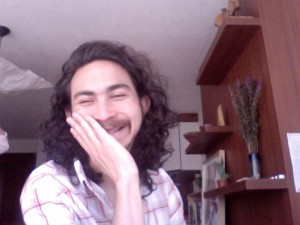 Lucas Andino. After graduating from the UO I maintained my contradictory habits of running and studying. The more I ran, it seemed, the more suited I was to encamping in the library. This has its limit, of course, and it’s not as if you can break into a run while reading. I applied this principle to my graduate studies at Columbia, which I survived with a fair degree of psychic stability. After completing my master’s I returned to Ecuador, where I taught literature and academic writing at the Universidad San Francisco de Quito. At the moment I’m in transition, having left university instruction to teach high school part-time while starting a master’s in political science at the Facultad Latinoamericana de Ciencias Sociales: I simply realized that most of my literary inquiries—as well as much of what was talked about in class—boiled down to finding the political moment from within.
Lucas Andino. After graduating from the UO I maintained my contradictory habits of running and studying. The more I ran, it seemed, the more suited I was to encamping in the library. This has its limit, of course, and it’s not as if you can break into a run while reading. I applied this principle to my graduate studies at Columbia, which I survived with a fair degree of psychic stability. After completing my master’s I returned to Ecuador, where I taught literature and academic writing at the Universidad San Francisco de Quito. At the moment I’m in transition, having left university instruction to teach high school part-time while starting a master’s in political science at the Facultad Latinoamericana de Ciencias Sociales: I simply realized that most of my literary inquiries—as well as much of what was talked about in class—boiled down to finding the political moment from within.
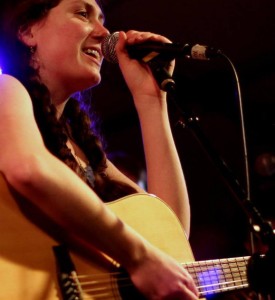 Olivia Awbrey. While pursuing a Comparative Literature degree with a focus on German literature and History, I also played in musical groups around Eugene. I’ve no doubt that the writing-centric major helped to develop my skills as a songwriter and equip me with crucial critical thinking tools I would never trade in. The major honed my ability to structure complex topics while enabling me to participate in stimulating political and literary discussions, which led me to apply for an internship with Oregon Public Broadcastin, which begins January of 2015. Currently in limbo between my undergraduate experience and beginning a Masters program in Global History at the Freie Universität in Berlin in October 2015, I am touring the West Coast with the music I wrote throughout my undergrad career.
Olivia Awbrey. While pursuing a Comparative Literature degree with a focus on German literature and History, I also played in musical groups around Eugene. I’ve no doubt that the writing-centric major helped to develop my skills as a songwriter and equip me with crucial critical thinking tools I would never trade in. The major honed my ability to structure complex topics while enabling me to participate in stimulating political and literary discussions, which led me to apply for an internship with Oregon Public Broadcastin, which begins January of 2015. Currently in limbo between my undergraduate experience and beginning a Masters program in Global History at the Freie Universität in Berlin in October 2015, I am touring the West Coast with the music I wrote throughout my undergrad career.
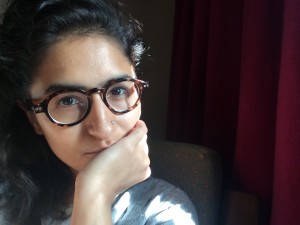 Devika Bakshi. Honestly? I had no idea what I was going to do when I graduated. Comparative Literature wasn’t part of a plan. I just ended up there because it best accommodated all my diffuse interests and impulses–theatre, literature, politics, sociology, post-coloniality, “Culture”, pop-culture, feminism, and who knows what else. Also because COLT classes, unlike the rest of my rickety academic career, didn’t feel like a struggle. I loved going to class, doing the work, reading interesting things and learning how to read them in interesting ways, talking about them with really smart people, and, most of all, being part of a community that was as interested as I was in looking at how things–places, languages, texts, ideas, disciplines–might connect to each other. Studying Comparative Literature was how I found my own way to make sense of the world. I have never, even in my darkest hours of post-collegiate existential despair, regretted being a COLT major.
Devika Bakshi. Honestly? I had no idea what I was going to do when I graduated. Comparative Literature wasn’t part of a plan. I just ended up there because it best accommodated all my diffuse interests and impulses–theatre, literature, politics, sociology, post-coloniality, “Culture”, pop-culture, feminism, and who knows what else. Also because COLT classes, unlike the rest of my rickety academic career, didn’t feel like a struggle. I loved going to class, doing the work, reading interesting things and learning how to read them in interesting ways, talking about them with really smart people, and, most of all, being part of a community that was as interested as I was in looking at how things–places, languages, texts, ideas, disciplines–might connect to each other. Studying Comparative Literature was how I found my own way to make sense of the world. I have never, even in my darkest hours of post-collegiate existential despair, regretted being a COLT major.
Eventually, after contemplating careers in non-profit work, book publishing, book selling, waitressing, photography and despair, I stumbled into a job at a magazine in my hometown (New Delhi, India), and decided to hang around in journalism a while. Mostly because I suspect that, at its best, journalism can be a great balance between being in the world, learning about it, and making sense of it. In the past couple of years, I’ve grown increasingly interested in environmental challenges in India, how they intersect with social justice concerns, and collide with development policy. Most recently, I’ve decided to lean into my longstanding love of radio, and will be attending the Transom Story Workshop this fall, learning how to tell stories in a different medium. I have a feeling radio will bring me closer to a sweet-spot I’m always seeking: some hybrid between storytelling, reportage, performance, experience and really good conversation.
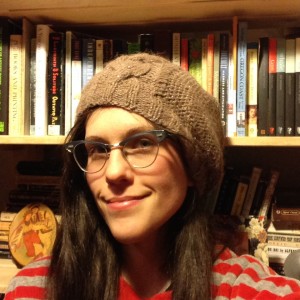 Olenka Burgess. Although literary translation was my goal through much of my time at the University of Oregon, shortly after graduation my path took an unexpected turn. I found employment at a stationery company, where I started out making paper and letterpress printing and then moved into production management. It is a wonderful and fulfilling place to work, but the itch to return to school is incessant. I have now decided to pursue a Masters in Book Publishing. I feel that the publishing industry will provide a happy medium between my love of language and my new-found interest in matters of business. I am also hopeful that I might be able to integrate my Japanese skills and my interest in translation into future research within the program, and into my future career.
Olenka Burgess. Although literary translation was my goal through much of my time at the University of Oregon, shortly after graduation my path took an unexpected turn. I found employment at a stationery company, where I started out making paper and letterpress printing and then moved into production management. It is a wonderful and fulfilling place to work, but the itch to return to school is incessant. I have now decided to pursue a Masters in Book Publishing. I feel that the publishing industry will provide a happy medium between my love of language and my new-found interest in matters of business. I am also hopeful that I might be able to integrate my Japanese skills and my interest in translation into future research within the program, and into my future career.
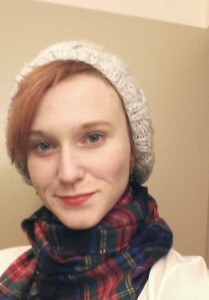 Nora Burmeister. I’m the type of person who has always found comfort and support in books. I find that literature provides opportunities to explore new places as well as to illuminate old ideas. This love of reading was behind my choice of comparative literature as my undergraduate major. The same passion drives my current pursuit of a graduate degree in library science. After receiving my BA I began to look for jobs defined by reading. I explored positions in publishing and, eventually, libraries. Since graduating I’ve held library staff positions in Oregon, Washington and Colorado. My study of comparative literature at Oregon has proven the ideal foundation for attaining my MLS. I hope to go on to serve as a librarian in academic libraries, to assist students in their research and reading-related endeavors, and to promote the dissemination of ideas in a democratic fashion.
Nora Burmeister. I’m the type of person who has always found comfort and support in books. I find that literature provides opportunities to explore new places as well as to illuminate old ideas. This love of reading was behind my choice of comparative literature as my undergraduate major. The same passion drives my current pursuit of a graduate degree in library science. After receiving my BA I began to look for jobs defined by reading. I explored positions in publishing and, eventually, libraries. Since graduating I’ve held library staff positions in Oregon, Washington and Colorado. My study of comparative literature at Oregon has proven the ideal foundation for attaining my MLS. I hope to go on to serve as a librarian in academic libraries, to assist students in their research and reading-related endeavors, and to promote the dissemination of ideas in a democratic fashion.
 Martha Calhoon. After double-majoring in Comparative Literature and Romance Languages, I pursued a master’s in magazine journalism, also at the UO. This led to an internship at Ms. Magazine in Los Angeles, after which I worked for almost three years as the research editor at Portland Monthly. As both a staff and freelance writer, I have written and blogged for a variety of national and regional publications, including Ms., Portland Monthly, Eugene Weekly, and Eugene Magazine. More recently, I directed communications for Children First for Oregon, an advocacy nonprofit whose mission is to develop state policy to benefit Oregon’s vulnerable children and families. In this role, I have come to understand how public perceptions of poverty stem from deeply embedded historical and cultural narratives—and how those, in turn, shape our policy priorities, our investments, and our political environment. In developing language and communications strategies for a range of audiences—from legislators to casual media consumers—I have relied upon my undergraduate literary and linguistic studies in framing, narrative, and metaphor to build public will around the issues of poverty and social services. As of September 2014, I am the Public Information Officer for the Portland Housing Bureau.
Martha Calhoon. After double-majoring in Comparative Literature and Romance Languages, I pursued a master’s in magazine journalism, also at the UO. This led to an internship at Ms. Magazine in Los Angeles, after which I worked for almost three years as the research editor at Portland Monthly. As both a staff and freelance writer, I have written and blogged for a variety of national and regional publications, including Ms., Portland Monthly, Eugene Weekly, and Eugene Magazine. More recently, I directed communications for Children First for Oregon, an advocacy nonprofit whose mission is to develop state policy to benefit Oregon’s vulnerable children and families. In this role, I have come to understand how public perceptions of poverty stem from deeply embedded historical and cultural narratives—and how those, in turn, shape our policy priorities, our investments, and our political environment. In developing language and communications strategies for a range of audiences—from legislators to casual media consumers—I have relied upon my undergraduate literary and linguistic studies in framing, narrative, and metaphor to build public will around the issues of poverty and social services. As of September 2014, I am the Public Information Officer for the Portland Housing Bureau.
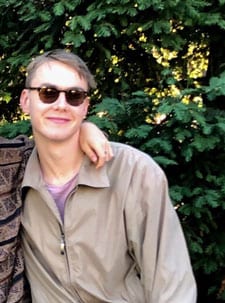 Patrick Dunham. Like many others who find their way to Comparative Literature, I began my time at UO seeking out classes in the humanities that had to do with literature or film. I tried out the Cinema Studies major and then moved on to English, but neither allowed for the flexibility in coursework that I wanted out of my education. I discovered COLT from an intro class and was attracted to its interdisciplinary nature and that the course offerings were basically cherry-picking in their variety and specificity. My electives ranged from a class entirely centered around the tradition of the novel and another that zeroed in on literary adaptation and what could be lost or gained in source content morphing to a new medium. For me the biggest advantage to comp lit is its range and flexibility in core coursework between critical theory and comparative approaches to literary traditions. Nomad is a unique feature of the department and I cannot recommend it enough for getting to engage in an academic domain in far more depth than possible in classes. Also, the department’s requirements of two seminars allowed me a deeper and more involved engagement with professors and peers than offered in even my smallest classes outside of the department. The first I took was Lyric Poetry with Prof. Middlebrook and the other was the Art of the Personal Essay with Dr. Marlan. The research paper I wrote for the former and the creative writing I did for the latter showed me the best of the major in its ability to intertwine academic and creative interests. Between the research papers I wrote in the seminars as well as involvement in campus publications, I developed a portfolio from both realms of interest that helped me to secure a publishing internship the fall after I graduated. Starting in September of 2018, I will be living in New York and interning with the publishing house Farrar, Straus and Giroux.
Patrick Dunham. Like many others who find their way to Comparative Literature, I began my time at UO seeking out classes in the humanities that had to do with literature or film. I tried out the Cinema Studies major and then moved on to English, but neither allowed for the flexibility in coursework that I wanted out of my education. I discovered COLT from an intro class and was attracted to its interdisciplinary nature and that the course offerings were basically cherry-picking in their variety and specificity. My electives ranged from a class entirely centered around the tradition of the novel and another that zeroed in on literary adaptation and what could be lost or gained in source content morphing to a new medium. For me the biggest advantage to comp lit is its range and flexibility in core coursework between critical theory and comparative approaches to literary traditions. Nomad is a unique feature of the department and I cannot recommend it enough for getting to engage in an academic domain in far more depth than possible in classes. Also, the department’s requirements of two seminars allowed me a deeper and more involved engagement with professors and peers than offered in even my smallest classes outside of the department. The first I took was Lyric Poetry with Prof. Middlebrook and the other was the Art of the Personal Essay with Dr. Marlan. The research paper I wrote for the former and the creative writing I did for the latter showed me the best of the major in its ability to intertwine academic and creative interests. Between the research papers I wrote in the seminars as well as involvement in campus publications, I developed a portfolio from both realms of interest that helped me to secure a publishing internship the fall after I graduated. Starting in September of 2018, I will be living in New York and interning with the publishing house Farrar, Straus and Giroux.
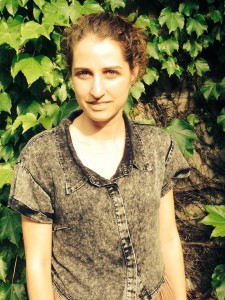 Lauren Greenhall. Since I graduated from the University of Oregon in 2012, I have been living in Brooklyn and working in Comedy Production. I worked for the past two years as an Associate Producer for the New York Comedy Festival, and I have had the opportunity to produce television and web content for Comedy Central, IFC, and the Upright Citizens Brigade Theatre. My Comparative Literature degree definitely equipped me with the necessary tools to work in this crazy business. I’m not necessarily a funny person, but because of COLT I became adept at thinking outside the box while also learning to discuss, debate and communicate my ideas effectively.
Lauren Greenhall. Since I graduated from the University of Oregon in 2012, I have been living in Brooklyn and working in Comedy Production. I worked for the past two years as an Associate Producer for the New York Comedy Festival, and I have had the opportunity to produce television and web content for Comedy Central, IFC, and the Upright Citizens Brigade Theatre. My Comparative Literature degree definitely equipped me with the necessary tools to work in this crazy business. I’m not necessarily a funny person, but because of COLT I became adept at thinking outside the box while also learning to discuss, debate and communicate my ideas effectively.
Click to read an article about Lauren’s work: http://cascade.uoregon.edu/winter2016/humanities/she-who-laughs-last/
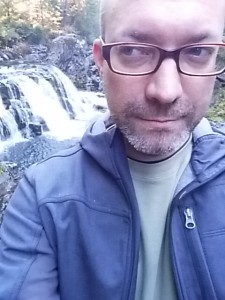 Mark Johnson. I graduated with Departmental Honors in 2004 (Danish and French). My first job was as an administrator with a San Francisco-based neuroscience software start-up company. There I assisted with groundbreaking studies regarding neuroplasticity and the use of computer training programs to stem the tide of age-related cognitive decline and related conditions. The company’s FDA liaison inspired me to pursue a career in the legal field, and I took a position with an international law firm. There I worked on products liability and telecommunications teams as a paralegal, although I was most honored to be part of a pro bono death penalty appeal team. After a decade in northern California, I returned home to the Pacific Northwest. Here in Seattle I worked in a construction law firm, but I was most intrigued by my work at a non-profit that reunites adult adoptees with their birth families. As a result of doing personally rewarding work again, I am now in the process of changing careers in order to become a nurse practitioner.
Mark Johnson. I graduated with Departmental Honors in 2004 (Danish and French). My first job was as an administrator with a San Francisco-based neuroscience software start-up company. There I assisted with groundbreaking studies regarding neuroplasticity and the use of computer training programs to stem the tide of age-related cognitive decline and related conditions. The company’s FDA liaison inspired me to pursue a career in the legal field, and I took a position with an international law firm. There I worked on products liability and telecommunications teams as a paralegal, although I was most honored to be part of a pro bono death penalty appeal team. After a decade in northern California, I returned home to the Pacific Northwest. Here in Seattle I worked in a construction law firm, but I was most intrigued by my work at a non-profit that reunites adult adoptees with their birth families. As a result of doing personally rewarding work again, I am now in the process of changing careers in order to become a nurse practitioner.
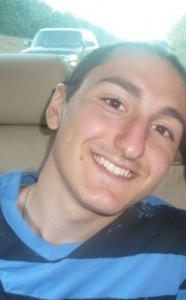 Beshara Kehdi. During my undergraduate studies, Comparative Literature was a refuge. The major put my creative and critical faculties to work. I was encouraged to think beyond the boundaries of national literatures and to resist Eurocentric thinking. The tools I acquired helped me figure out where I could contribute most effectively. I’m currently a Youth Coordinator with the Arab Cultural and Community Center of San Francisco. I co-run an afterschool tutoring and academic assistance program for underserved K-12 Arab and Arab American youth living in the Tenderloin. I help students establish Arab Cultural Clubs in their high schools. This work is a mix of youth empowerment, organizing, and education aimed at making the rocky transition to adulthood and positions of leadership easier and more meaningful. When youth have space in which to narrate their stories, examine their identities and use their experiences as means of confronting the many dehumanizing systems of the modern world, hope is near. Whether you are anticipating your future with excitement or anxiety, seek out community and mentorship (especially from COLT faculty!) and use the countless resources within the department and beyond. Visit the Multicultural Center, ask about student organizing, get involved. Think about the impact you can make, stay critical, and take the leap.
Beshara Kehdi. During my undergraduate studies, Comparative Literature was a refuge. The major put my creative and critical faculties to work. I was encouraged to think beyond the boundaries of national literatures and to resist Eurocentric thinking. The tools I acquired helped me figure out where I could contribute most effectively. I’m currently a Youth Coordinator with the Arab Cultural and Community Center of San Francisco. I co-run an afterschool tutoring and academic assistance program for underserved K-12 Arab and Arab American youth living in the Tenderloin. I help students establish Arab Cultural Clubs in their high schools. This work is a mix of youth empowerment, organizing, and education aimed at making the rocky transition to adulthood and positions of leadership easier and more meaningful. When youth have space in which to narrate their stories, examine their identities and use their experiences as means of confronting the many dehumanizing systems of the modern world, hope is near. Whether you are anticipating your future with excitement or anxiety, seek out community and mentorship (especially from COLT faculty!) and use the countless resources within the department and beyond. Visit the Multicultural Center, ask about student organizing, get involved. Think about the impact you can make, stay critical, and take the leap.
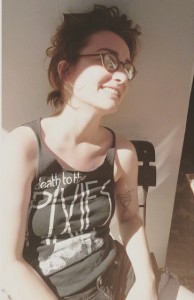 Lily Leach. After seven years in college and switching majors a half dozen times, I graduated with a BA in Comparative Literature, where I finally found my home. In my final semester I was in Professor Michael Allan’s office asking him what he thought I should do with my life (I was studying Arabic with an interest in the Middle East). He suggested I buy a one-way ticket to Cairo. Initially appalled by what I thought was reckless advice, I soon did exactly that. I arrived in Cairo a humble former doughnut shop manager, and was offered the position of managing editor at a local trade magazine. I also became the editorial trainee for the American University in Cairo Press. After 14 months in Cairo, I accepted another editing position at a business magazine in Istanbul, where I have been living for nine months. I am also a volunteer editor for a blog publishing English translations of LGBTI news in Turkey, as well as a volunteer editor for a Jordanian LGBT magazine.
Lily Leach. After seven years in college and switching majors a half dozen times, I graduated with a BA in Comparative Literature, where I finally found my home. In my final semester I was in Professor Michael Allan’s office asking him what he thought I should do with my life (I was studying Arabic with an interest in the Middle East). He suggested I buy a one-way ticket to Cairo. Initially appalled by what I thought was reckless advice, I soon did exactly that. I arrived in Cairo a humble former doughnut shop manager, and was offered the position of managing editor at a local trade magazine. I also became the editorial trainee for the American University in Cairo Press. After 14 months in Cairo, I accepted another editing position at a business magazine in Istanbul, where I have been living for nine months. I am also a volunteer editor for a blog publishing English translations of LGBTI news in Turkey, as well as a volunteer editor for a Jordanian LGBT magazine.
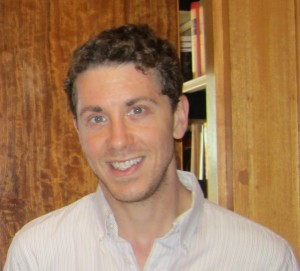 Charles “Chuck” Leavitt. After graduating from the UO, I was offered a Presidential Fellowship in the PhD in Literature program at the University of Notre Dame. While sad to leave Eugene, I was thrilled to be able to continue my literary studies and happily moved to South Bend, Indiana, joined by my then-girlfriend (now wife) Brynn, a fellow UO-graduate. At Notre Dame, I completed an MA in Italian Studies in 2005, then set off for two years in Italy. An apprentice at the Opera del vocabolario italiano, part of the Accademia della Crusca, the world’s oldest linguistic academy, I was allowed to author a number of entries in the historical dictionary of the Italian language. After two years abroad, I returned to South Bend and finished my PhD in 2010 with a dissertation on Italian neorealism, then remained at Notre Dame for two more years as a Postdoctoral Fellow in the Italian Studies program. In September 2012, Brynn and I moved abroad again, this time so that I could take up a permanent position at the University of Reading, in England, where I am now an Assistant Professor (or rather Lecturer, in the British system) of Italian Studies in the Department of Modern Languages and European Studies. The foundations for my career were laid at the UO, where I first studied Dante, with Gina Psaki; where I first explored literary etymology, with Roland Greene; and where I studied in a thriving Department of Comparative Literature, chaired by Kenneth Calhoon. We may be known as the Knights at the University of Reading, but I remain a proud (and very grateful) Duck.
Charles “Chuck” Leavitt. After graduating from the UO, I was offered a Presidential Fellowship in the PhD in Literature program at the University of Notre Dame. While sad to leave Eugene, I was thrilled to be able to continue my literary studies and happily moved to South Bend, Indiana, joined by my then-girlfriend (now wife) Brynn, a fellow UO-graduate. At Notre Dame, I completed an MA in Italian Studies in 2005, then set off for two years in Italy. An apprentice at the Opera del vocabolario italiano, part of the Accademia della Crusca, the world’s oldest linguistic academy, I was allowed to author a number of entries in the historical dictionary of the Italian language. After two years abroad, I returned to South Bend and finished my PhD in 2010 with a dissertation on Italian neorealism, then remained at Notre Dame for two more years as a Postdoctoral Fellow in the Italian Studies program. In September 2012, Brynn and I moved abroad again, this time so that I could take up a permanent position at the University of Reading, in England, where I am now an Assistant Professor (or rather Lecturer, in the British system) of Italian Studies in the Department of Modern Languages and European Studies. The foundations for my career were laid at the UO, where I first studied Dante, with Gina Psaki; where I first explored literary etymology, with Roland Greene; and where I studied in a thriving Department of Comparative Literature, chaired by Kenneth Calhoon. We may be known as the Knights at the University of Reading, but I remain a proud (and very grateful) Duck.
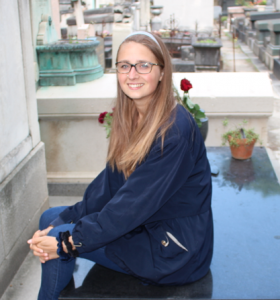 Patty Nash. After graduation, I moved to the French Riviera and taught English in primary schools. I spent most of that time writing, reading Proust (seriously), composing overlong, involved e-mails, and basking in the sun—before downgrading my location to Iowa City, where I am an Iowa Arts Fellow in the University of Iowa’s MFA in literary translation program. In my first year, I’ve come to edit several literary journals (including Asymptote Journal and Exchanges) and I have translations published (or forthcoming) from Dutch, German, and French (though I don’t—technically—speak Dutch). I am currently working on two serious projects: a novel-length translation of French author Fabienne Kanor’s Faire l’Aventure and a translation of German poet Rike Scheffler’s first collection of poems der rest ist resonanz, for which I received an Iowa Stanley travel grant to Berlin. I also write, tutor, proofread, DJ, and make installation art in my free time (my most recent exhibit included human-sized tea bags). I am so, so, so grateful for the critical sensibility and acumen I have acquired through my COLT major at the University of Oregon. I am so much a better thinker, reader, writer, and citizen because of it.
Patty Nash. After graduation, I moved to the French Riviera and taught English in primary schools. I spent most of that time writing, reading Proust (seriously), composing overlong, involved e-mails, and basking in the sun—before downgrading my location to Iowa City, where I am an Iowa Arts Fellow in the University of Iowa’s MFA in literary translation program. In my first year, I’ve come to edit several literary journals (including Asymptote Journal and Exchanges) and I have translations published (or forthcoming) from Dutch, German, and French (though I don’t—technically—speak Dutch). I am currently working on two serious projects: a novel-length translation of French author Fabienne Kanor’s Faire l’Aventure and a translation of German poet Rike Scheffler’s first collection of poems der rest ist resonanz, for which I received an Iowa Stanley travel grant to Berlin. I also write, tutor, proofread, DJ, and make installation art in my free time (my most recent exhibit included human-sized tea bags). I am so, so, so grateful for the critical sensibility and acumen I have acquired through my COLT major at the University of Oregon. I am so much a better thinker, reader, writer, and citizen because of it.
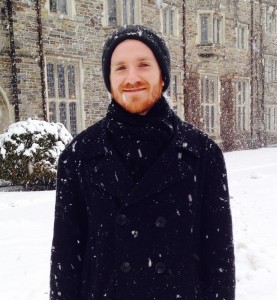 Joseph Plagmann. When I first arrived at the University of Oregon as a freshman, I felt unsure before declaring a major. The classes that I took confirmed my interest in many disciplines in the humanities, including philosophy, art, language, literature, and history, but until I took my first course in Comparative Literature I didn’t know how I would explore these interests. Comparative literature has taught me to think critically about the way these areas intersect and function within the context of different cultures and societies, and how they take effect in the way I think about myself, others, and the world around me. Four years later, in 2013, I graduated from the UO with a B. A. in Comparative Literature with a focus in Russian language and literature. Hoping to continue my studies, I began compiling my applications to graduate school, which many of my former professors in COLT helped me to perfect. In spring of 2014 I was accepted into the Department of Comparative Literature PH.D program at Princeton University where I began my course of study in the fall of 2014. I have just completed my first year of graduate school there, and this summer I will be studying Russian at the Middlebury Language Schools in Vermont.
Joseph Plagmann. When I first arrived at the University of Oregon as a freshman, I felt unsure before declaring a major. The classes that I took confirmed my interest in many disciplines in the humanities, including philosophy, art, language, literature, and history, but until I took my first course in Comparative Literature I didn’t know how I would explore these interests. Comparative literature has taught me to think critically about the way these areas intersect and function within the context of different cultures and societies, and how they take effect in the way I think about myself, others, and the world around me. Four years later, in 2013, I graduated from the UO with a B. A. in Comparative Literature with a focus in Russian language and literature. Hoping to continue my studies, I began compiling my applications to graduate school, which many of my former professors in COLT helped me to perfect. In spring of 2014 I was accepted into the Department of Comparative Literature PH.D program at Princeton University where I began my course of study in the fall of 2014. I have just completed my first year of graduate school there, and this summer I will be studying Russian at the Middlebury Language Schools in Vermont.
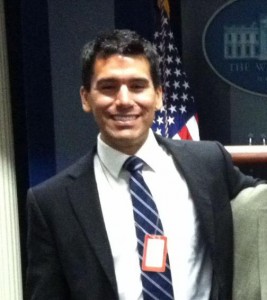 Ben Ordonez. Shortly after graduation in Fall 2011, I accepted a Congressional legislative internship with Rep. Earl Blumenauer (OR-03), which subsequently led to an Interim Staff Assistant/Legislative Correspondent position in his Washington, D.C. office. Following this, I accepted a position with a small government relations firm whose clients were primarily focused on transportation and infrastructure policy. In August 2013, I accepted a Federal Relations Associate position with Strategies 360, a Seattle-based firm with offices across 10 western states and Washington, DC. Currently, I am on staff with a frontline U.S. Senate campaign with plans to return to DC after Election Day. I can say with great confidence that the experiences gained from my studies with the UO Department of Comparative Literature provided a broad foundation from which to grow and thrive after graduation. The breadth and depth of topical discussions in each class I took sharpened my critical thinking and analytical reasoning skills, which have been integral elements of success in my chosen career path.
Ben Ordonez. Shortly after graduation in Fall 2011, I accepted a Congressional legislative internship with Rep. Earl Blumenauer (OR-03), which subsequently led to an Interim Staff Assistant/Legislative Correspondent position in his Washington, D.C. office. Following this, I accepted a position with a small government relations firm whose clients were primarily focused on transportation and infrastructure policy. In August 2013, I accepted a Federal Relations Associate position with Strategies 360, a Seattle-based firm with offices across 10 western states and Washington, DC. Currently, I am on staff with a frontline U.S. Senate campaign with plans to return to DC after Election Day. I can say with great confidence that the experiences gained from my studies with the UO Department of Comparative Literature provided a broad foundation from which to grow and thrive after graduation. The breadth and depth of topical discussions in each class I took sharpened my critical thinking and analytical reasoning skills, which have been integral elements of success in my chosen career path.
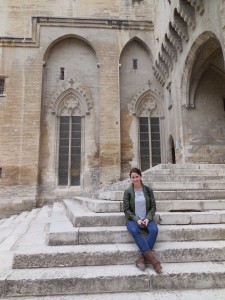 Charlotte Reingold. After graduating from the UO, I moved to France to teach English to high school students. Comparative Literature gave me not only a love of languages but also a fascination for how they work, and this certainly influences my thinking while abroad. Each day here, I am amazed by how I am able to understand a large chunk of French intuitively, when I would be hard-pressed to answer if asked to repeat what I heard, or to identify individual words; how my students find my American accent more difficult to understand than a British accent; how often we fail to recognize cognates because of differing pronunciations. In terms of my plans for more long-term employment, while, like any literary nerd, I am interested in publishing and editing, I am open to many other jobs that would put my writing and analytical skills to work. I’m sure that the answer to “Where am I now?” will be different in a year, but I think that variability is a hallmark of a true COLT graduate. Even though I have only just taken my first step out of the crook of the UO, I feel as if I have been farther than I have, thanks to the way COLT expanded my horizons by teaching me to critically engage with the culture in front of me.
Charlotte Reingold. After graduating from the UO, I moved to France to teach English to high school students. Comparative Literature gave me not only a love of languages but also a fascination for how they work, and this certainly influences my thinking while abroad. Each day here, I am amazed by how I am able to understand a large chunk of French intuitively, when I would be hard-pressed to answer if asked to repeat what I heard, or to identify individual words; how my students find my American accent more difficult to understand than a British accent; how often we fail to recognize cognates because of differing pronunciations. In terms of my plans for more long-term employment, while, like any literary nerd, I am interested in publishing and editing, I am open to many other jobs that would put my writing and analytical skills to work. I’m sure that the answer to “Where am I now?” will be different in a year, but I think that variability is a hallmark of a true COLT graduate. Even though I have only just taken my first step out of the crook of the UO, I feel as if I have been farther than I have, thanks to the way COLT expanded my horizons by teaching me to critically engage with the culture in front of me.
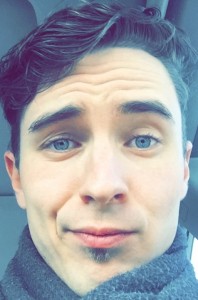 Cameron Thurber. The Department of Comparative Literature expertly prepared me to do just that: compare texts. They were so effective that it was all I wanted to do upon graduating. Luckily, thanks to the immense support from Oregon’s faculty and graduate students, I was able to successfully transition to graduate school at Emory University’s Department of Comparative Literature and continue my love of textual engagement. In the years since I started this PhD program, I find myself often recalling my time spent in the Peach Palace and the group of amazing minds contained therein. I would not be where I am today without having first been inspired to elevate my literary hobby into a literary way of life. So, where exactly am I now? Hundreds of books and dozens of papers later, I am performing the same love of literature that was taught to me in Villard all those years ago. It is my small hope that I can do justice to those who inspired me by teaching and sharing with others a sincere passion for text.
Cameron Thurber. The Department of Comparative Literature expertly prepared me to do just that: compare texts. They were so effective that it was all I wanted to do upon graduating. Luckily, thanks to the immense support from Oregon’s faculty and graduate students, I was able to successfully transition to graduate school at Emory University’s Department of Comparative Literature and continue my love of textual engagement. In the years since I started this PhD program, I find myself often recalling my time spent in the Peach Palace and the group of amazing minds contained therein. I would not be where I am today without having first been inspired to elevate my literary hobby into a literary way of life. So, where exactly am I now? Hundreds of books and dozens of papers later, I am performing the same love of literature that was taught to me in Villard all those years ago. It is my small hope that I can do justice to those who inspired me by teaching and sharing with others a sincere passion for text.
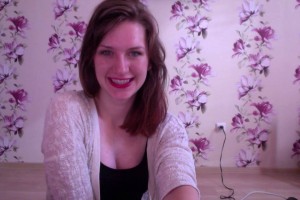 Diana Wildridge. When I came to college, I knew I wanted to study words. I discovered the Comparative Literature department through a film class and fell in love with the curriculum. Being a COLT major allowed me to study the languages I loved (Russian and French, from different departments) while expanding my analytical thinking and writing skills in English. I graduated from UO with three majors, something that would have been impossible but for the flexibility and encouragement of the COLT department. I was also able to write an honors thesis and submit a paper to NOMAD. This made me a competitive law school applicant and I am proud to be a “double duck”, currently continuing my studies at the University of Oregon School of Law.
Diana Wildridge. When I came to college, I knew I wanted to study words. I discovered the Comparative Literature department through a film class and fell in love with the curriculum. Being a COLT major allowed me to study the languages I loved (Russian and French, from different departments) while expanding my analytical thinking and writing skills in English. I graduated from UO with three majors, something that would have been impossible but for the flexibility and encouragement of the COLT department. I was also able to write an honors thesis and submit a paper to NOMAD. This made me a competitive law school applicant and I am proud to be a “double duck”, currently continuing my studies at the University of Oregon School of Law.